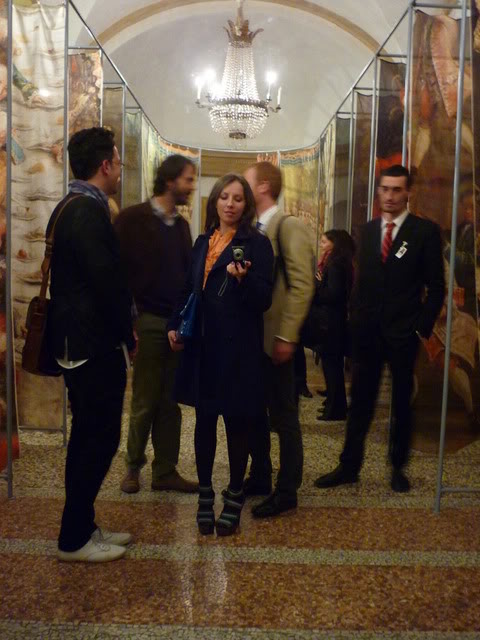First of all, let me make no secret of the fact that I love short films. Short films are to features what poetry is to literature. The best short films say more in 10 minutes than most features manage in two hours. In the same way that too many people say they don't like or don't get poetry, many film goers tend to say the same about short films.
Of the seven films I saw yesterday (4 from the UK, 1 from Australia, 1 from Iceland and 1 from Poland), all were very good, three were outstanding and only one felt mildly unoriginal. Most of the film-makers were present at the screening and a few things struck me as peculiar: two of the films were co-directed by brothers (have the Cohen's really had this much of an impact on an entire generation of film-makers?) and only one of the films was directed by a woman. As soon as I started to wonder why cinema - or at least this screening - was so male dominated, it also hit me that the film I thought was the least original - After Tomorrow - was also the only female directed film. Even though I wasn't very keen on the bizarrely titled, Spunkbubble, there's absolutely no way anyone could suggest the film was unoriginal.
It was a bit of a surprise to see Keira Knightley and Rupert Friend on screen in the short film, The Continuing and Lamentable Saga of the Suicide Brothers, though I've since discovered that Friend wrote the film alongside its third actor, Tom Mison. While the film is sinisterly beautiful to behold, there's something of a vanity project vibe about it. Though another benefit of short films is that you can forgive a 10-minute beautifully shot vanity project in a way that you simply can't forgive a 2.5 hour vanity project. Everyone wins with short films.
 Still from Cicada
Still from CicadaI think my favourite of the lot, though by no means the most creative or most original, was Amiel Courtin-Wilson's Cicada. In fact, it wasn't so much a short film as it was a mini documentary. It's just ten minutes of one man telling a story - in extreme close up - straight into the camera. Given that there are few cuts and that it's nothing other than this man's face, the ten minutes are absolutely gripping. I could only find a few stills, but what sadly doesn't come across in the stills photography is the quality of the cinematography. It's beautifully back lit so that the intense blue of the man's eyes are perfectly set off against the white glow of the background. My only complaint is that Courtin-Wilson mucks up the end a bit, by putting in some arty hand-held shots of the man walking through darkened streets - totally gratuitous and unnecessary given the power of the simplicity of the previous nine minutes. I suppose though, that this is the thing that distinguishes the truly great artists from the just plain good: knowing when to stop.





No comments:
Post a Comment